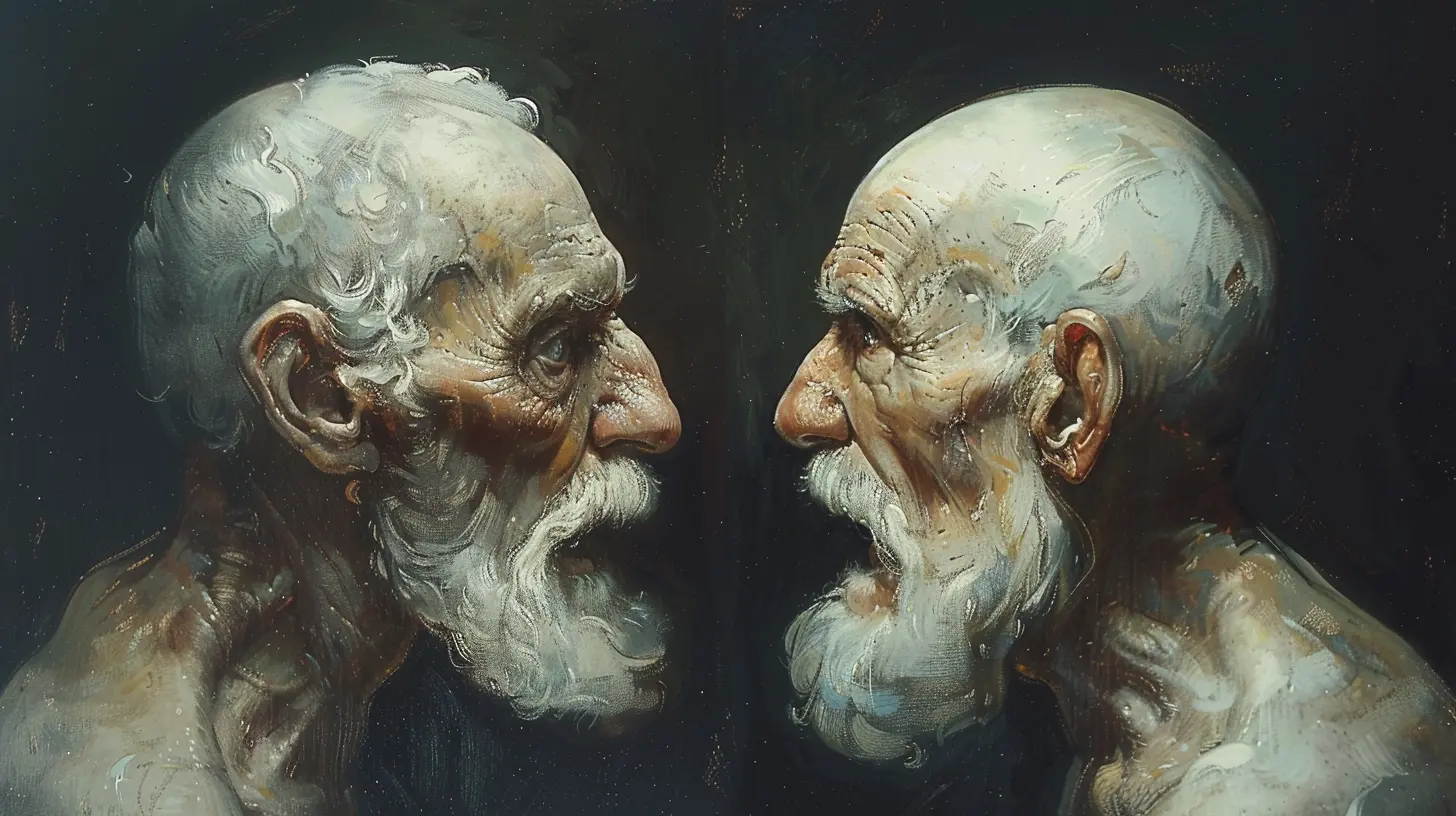The Role of Aggression in Psychoanalytic Theory: Insights from Freud and Beyond
7 May 2025
Aggression is a powerful and complex aspect of human nature. From minor frustrations to full-blown rage, it plays a crucial role in our psychological makeup. But have you ever wondered why aggression exists in the first place? Is it something we learn, or is it deeply rooted in our unconscious mind?
Sigmund Freud, the father of psychoanalysis, had a lot to say about aggression. His theories laid the foundation for understanding human instincts, including why we sometimes lash out. But Freud wasn’t the only one with insights—many psychologists after him expanded on his ideas, offering new perspectives on aggression and its impact on behavior.
In this article, we’ll dive deep into the role of aggression in psychoanalytic theory. We'll break down Freud’s perspective, explore how later theorists built upon his work, and see how these ideas apply to our daily lives.

Freud’s View on Aggression: The Death Drive
Freud initially believed that aggression was linked to the pleasure principle—people acted aggressively when their desires were blocked. However, as he developed his theories, he introduced a more profound concept: the death drive (Thanatos).According to Freud, human behavior is guided by two opposing forces:
- Eros (the life drive) – This represents our instincts for survival, reproduction, love, and creativity.
- Thanatos (the death drive) – This drive pushes us toward destruction, aggression, and even self-harm.
Sounds dark, right? But Freud believed that aggression was a natural part of our psyche—an unconscious force driving us toward chaos and violence. While Eros helps us build relationships and sustain life, Thanatos, when turned outward, fuels aggression and even war.
For Freud, aggression wasn’t just about anger or frustration. It was part of a deeper, instinctual struggle between life and destruction.

The Role of Aggression in Freud’s Structural Model
Freud's model of the psyche—id, ego, and superego—also plays a crucial role in understanding aggression.1. The Id – This is the most primitive part of our mind, responsible for basic instincts and urges. It doesn’t care about right or wrong—it just wants what it wants. When aggressive impulses arise, they often come from the id.
2. The Ego – Acting as the mediator, the ego tries to balance the id’s aggressive urges with reality. It helps us express aggression in socially acceptable ways.
3. The Superego – This is the moral compass, shaped by societal norms and values. It often suppresses aggressive impulses, making us feel guilty for thoughts of anger or violence.
Freud believed that when we suppress aggression for too long, it can manifest in unhealthy ways—either turning inward (self-destruction) or erupting outward in uncontrolled rage.

Beyond Freud: Neo-Freudian Perspectives on Aggression
While Freud’s ideas on aggression were groundbreaking, several psychologists expanded on his theories, offering new insights.Carl Jung: Aggression as Part of the Shadow Self
Carl Jung, a former disciple of Freud, had a slightly different take on aggression. He introduced the concept of the shadow self—the darker, unconscious aspects of our personality that we often deny or repress.According to Jung, aggression isn’t necessarily evil. It becomes problematic only when ignored or suppressed. He believed that integrating the shadow self—accepting and understanding our aggressive tendencies—was key to achieving psychological balance.
Alfred Adler: Aggression and the Drive for Superiority
Adler had an entirely different perspective on aggression. He argued that aggression wasn’t necessarily destructive but could be a response to feelings of inferiority.According to Adler, people who feel weak or undervalued often develop aggressive tendencies as a way to assert dominance or prove their worth. This idea explains why some individuals lash out when they feel powerless—it’s their unconscious way of compensating for deep-seated insecurities.
Melanie Klein: Aggression in Childhood
Melanie Klein, a major figure in psychoanalysis, focused on how aggression develops in early childhood. She believed that infants experience deep conflicts between love and aggression, known as the paranoid-schizoid position.In her view, babies don’t just see caregivers as purely loving or safe—they also project aggressive feelings onto them. As they grow, they learn to integrate these conflicting emotions, which shapes their ability to handle aggression later in life.
Klein’s theory helps explain why childhood experiences, especially early relationships, play a crucial role in shaping how we deal with aggression as adults.

Aggression in Everyday Life: How Psychoanalytic Theories Apply Today
So, what does all this mean for us today? While Freud and his followers laid the foundation for understanding aggression, modern psychology continues to explore its role in mental health, relationships, and society.1. Repressed Aggression Can Lead to Anxiety and Depression
Freud believed that keeping aggression bottled up could result in psychological distress. Ever noticed how suppressing anger for too long can lead to emotional burnout? Modern research supports the idea that unexpressed emotions—especially aggression—can contribute to anxiety and depression.2. Aggression and Social Media
Jung’s idea of the shadow self is more relevant than ever in the digital age. Online anonymity often emboldens people to express aggression in ways they never would in real life. It’s almost as if social media gives a platform to the dark parts of the unconscious mind.3. Childhood Trauma and Aggressive Behavior
Klein’s theories highlight how early experiences shape our emotional responses. Children exposed to neglect or violence often struggle with aggression later in life. This is why understanding childhood trauma is crucial in addressing anger issues.4. Workplace and Relationship Conflicts
Adler’s insights on aggression as a response to inferiority explain many workplace and relationship conflicts. People who feel undervalued or powerless may act aggressively to regain a sense of control—whether through passive-aggressive behavior or outright hostility.Managing Aggression: A Balance Between Expression and Control
Understanding aggression from a psychoanalytic perspective isn’t just about theory—it also helps in managing our emotions in healthy ways. Here are some practical takeaways:- Acknowledge your feelings. Suppressing aggression can be harmful. It’s okay to feel angry, but how you express it matters.
- Channel aggression positively. Instead of lashing out, try redirecting aggressive energy into physical activity, creative work, or problem-solving.
- Self-reflection is key. Jung’s concept of the shadow self suggests that self-awareness is crucial. Recognizing aggressive tendencies can help prevent unhealthy behavior.
- Seek therapy if needed. Sometimes, aggression stems from deep psychological wounds. Therapists trained in psychoanalytic methods can help uncover the root causes.
Final Thoughts
Aggression is not just an emotional reaction—it’s deeply embedded in our psyche. Freud saw it as part of the death drive, Jung believed in integrating it into the self, and Adler linked it to self-worth. While psychoanalytic theories help explain aggression, modern psychology continues to refine these ideas.The key takeaway? Aggression isn’t inherently bad. It’s how we manage and understand it that makes the difference. By acknowledging our inner conflicts and finding healthy outlets, we can navigate aggression in ways that promote personal growth rather than destruction.
all images in this post were generated using AI tools
Category:
PsychoanalysisAuthor:

Ember Forbes
Discussion
rate this article
3 comments
Jack Perry
Aggression, often seen as destructive, can reveal deeper conflicts within—challenging us to explore our unconscious motives and desires.
May 11, 2025 at 3:25 AM

Ember Forbes
Thank you for your insightful comment! Indeed, aggression can serve as a catalyst for self-exploration, helping us uncover underlying conflicts and desires that shape our behavior.
Gianna Mitchell
This article beautifully illuminates the complex nature of aggression in our minds.
May 9, 2025 at 4:41 AM

Ember Forbes
Thank you! I'm glad you found it insightful. Exploring aggression's complexity is crucial for understanding our psychological dynamics.
Calaris McWilliams
This article offers insightful perspectives on aggression in psychoanalysis, effectively bridging Freud's theories with contemporary views. A thought-provoking read!
May 7, 2025 at 4:29 PM

Ember Forbes
Thank you for your thoughtful feedback! I'm glad you found the connection between Freud's theories and contemporary perspectives insightful.



